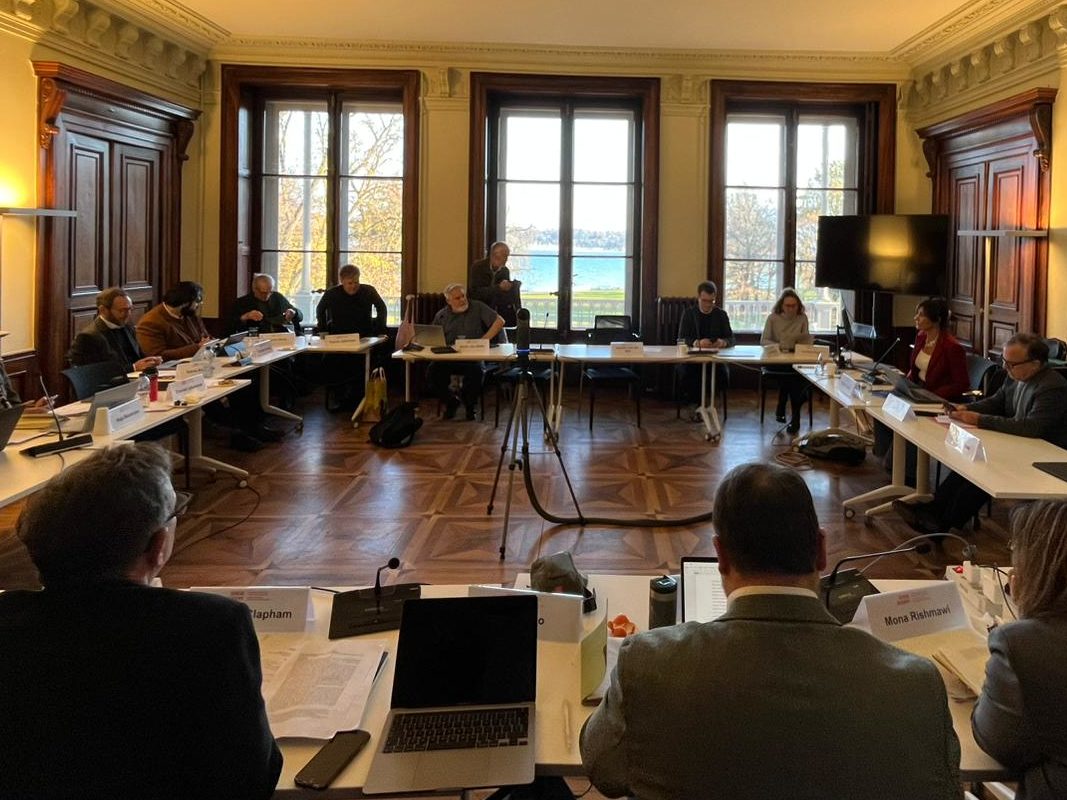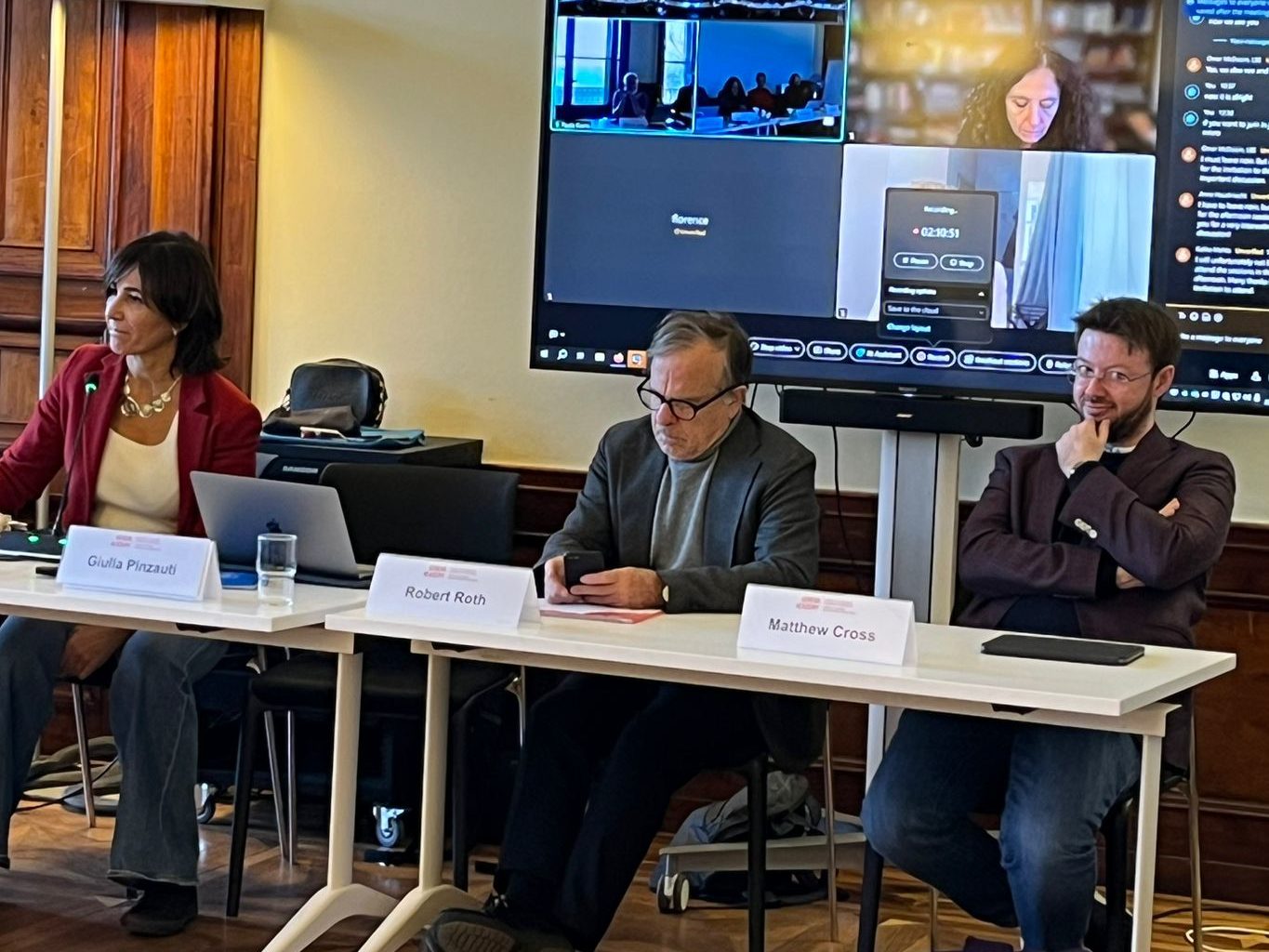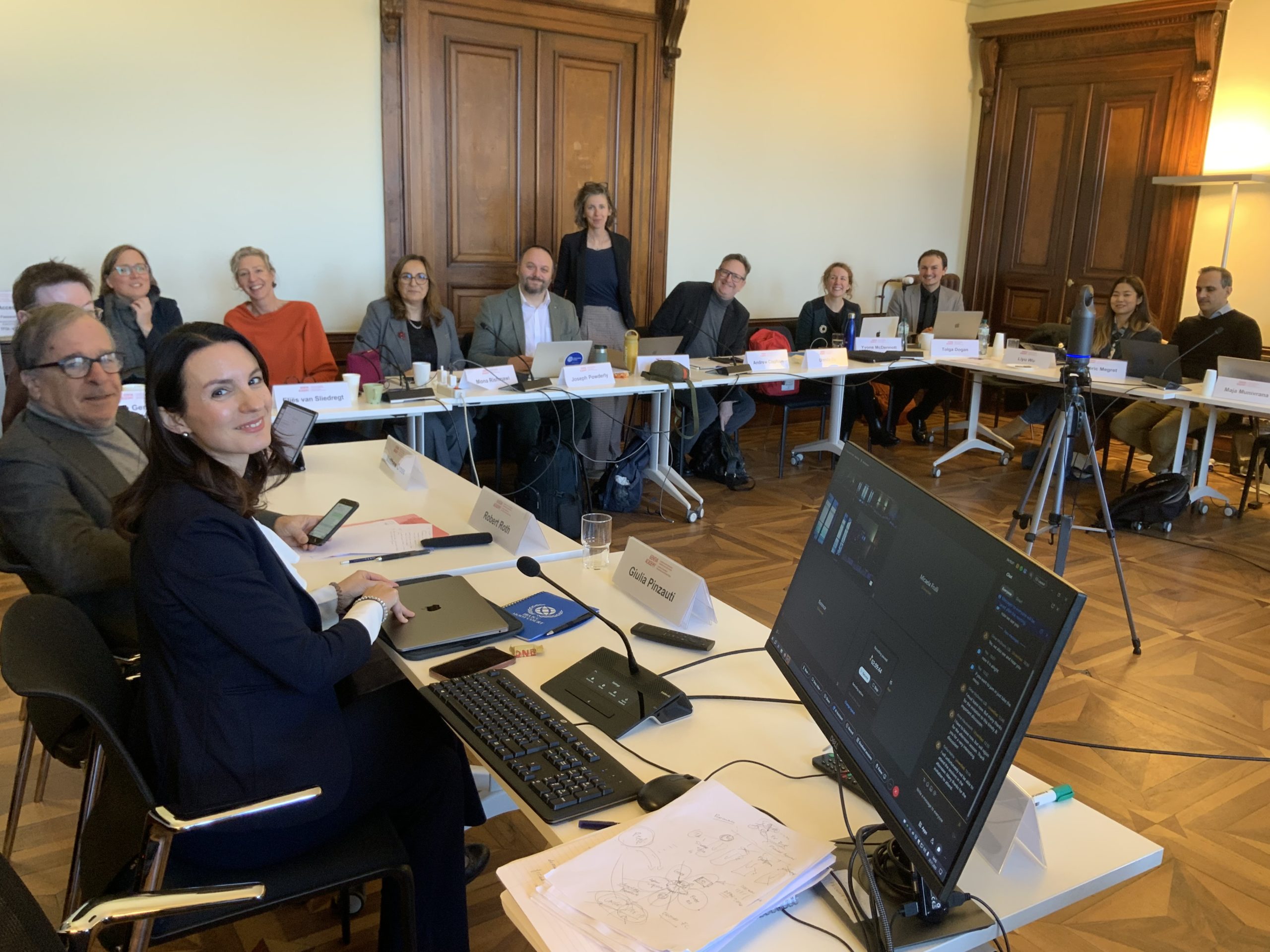Geneva Academy Hosts Expert Workshop on ‘Genocide in War’
The Geneva Academy brought together leading scholars and practitioners for a closed expert workshop titled “Genocide in War”, examining the complex legal and conceptual relationship between armed conflict and genocide. The event was co-convened by Professor Paola Gaeta, Director of the Geneva Academy, and Professor Giulia Pinzauti, Leiden University.



Held in a hybrid format, the one-day workshop welcomed 30–35 participants in person at Villa Moynier, with additional experts joining online. The programme featured short presentations followed by structured debate, fostering rigorous discussion on contentious legal questions.
Participation was by invitation only, ensuring a safe environment for in-depth discussion. The hybrid format allowed experts to engage fully in person or online. The event was supported by the Swiss National Science Foundation, the Société Académique de Genève, and the Antonio Cassese Initiative for Justice, Peace and Humanity.
Key Themes
The workshop explored when acts in wartime may amount to genocide and whether current frameworks adequately address modern forms of group destruction. Discussions focused on:
- Conceptualising genocide as a form of warfare
- Distinguishing military operations from genocidal acts
- Starvation and denial of humanitarian assistance as methods of destruction
- Inferring genocidal intent during armed conflict
- Standards of proof for establishing genocide
Speakers and Panels
The event featured five panels:
- Genocide by War – Frédéric Mégret (McGill University), Discussant: Kevin Jon Heller (University of Copenhagen)
- Military Operations or Genocidal Acts? – Paola Gaeta, Discussant: Maja Munivrana
- Denial of Humanitarian Assistance and Genocide by Starvation – Giulia Pinzauti, Discussant: Andrew Clapham
- Inferring Genocidal Intent in War – Vaios Koutroulis & Joseph Powderly
- Standards of Evidence of Genocide in Warfare – Alex Whiting, Discussant: Yvonne McDermott
Professor Florian Jeßberger (Humboldt University Berlin) delivered the closing remarks.
Rich Discussion and Debate
Panels prompted lively debate, covering:
- How to distinguish legitimate military action from genocidal conduct
- The role of targeting rules in interpreting killings
- Whether starvation constitutes a genocidal method
- Inferring intent amidst complex military operations
- Challenges in applying evidentiary standards
Special Issue Publication
The Journal of International Criminal Justice will publish a Special Issue on Genocide in War, edited by Gaeta and Pinzauti, featuring revised contributions from workshop speakers.